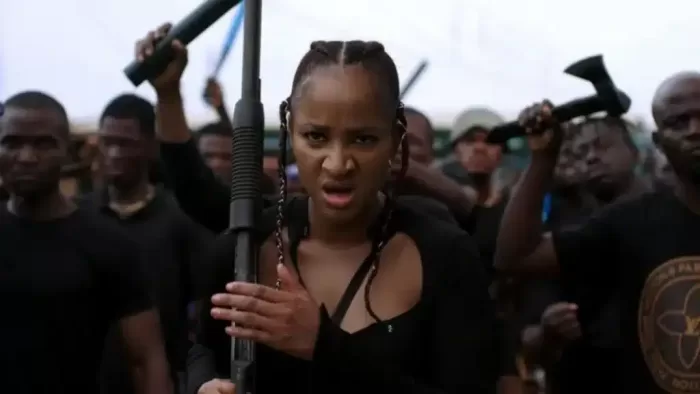
If you know how much the ‘Gangs Of Lagos’ has grossed for Nigeria in the past few days of release, banning the movie, which is a fiction, could be a roll back.

The call for ban of the movie has reached the tables of the Nigerian government and it has something to say about Gangs Of Lagos that will interest movie lovers.
It says it cannot ban ‘Gangs of Lagos’ following the controversies that have trailed the movie since its release.
The Executive Director and CEO of the National Film and Video Censors Board (NFVCB), Adedayo Thomas, reveals this in a chat with Vanguard on Friday.
Online Platforms
Thomas says the board cannot take any action against the movie for now because it has no legal backing to regulate what is being exhibited on the online platform.
The NFVCB boss regrets that regulating online platforms is difficult since it’s not part of the mandate of the Board.
He added that a bill is before the National Assembly seeking to empower the Board to regulate online platforms and any other platforms where movies are exhibited.
“Have you seen the movie in any cinema house or being exhibited in any open space?
Our job does not cover regulating online platforms.
“I don’t know why people are referring to the Censors Board to take action.
We have a bill before the National Assembly seeking to empower the Board to regulate online platforms and any other platforms where movies are exhibited.
“Online platform is difficult to regulate and it’s not part of our mandate.”
Eyo Masquerade
Thomas’ explanation became necessary following the claims that the Eyo masquerade was portrayed as a criminal in the ‘Gangs of Lagos’ film.
You May Like: Sup. Election: INEC Officials ‘Flee’ PU With Result Sheet, BVAS
Lagos indigenes, on the platform of Isale Eko Descendants’ Union (IDU) recently petitioned the Censors Board over alleged defamation of their community, and Eyo masquerade in the ‘Gangs of Lagos’ film.
Also Read: Achraf Hakimi: What Every Young Man Should Learn
The Lagos State Government, on its part, described the movie as a cultural misrepresentation as well as portraying the culture of the state in a derogatory manner.